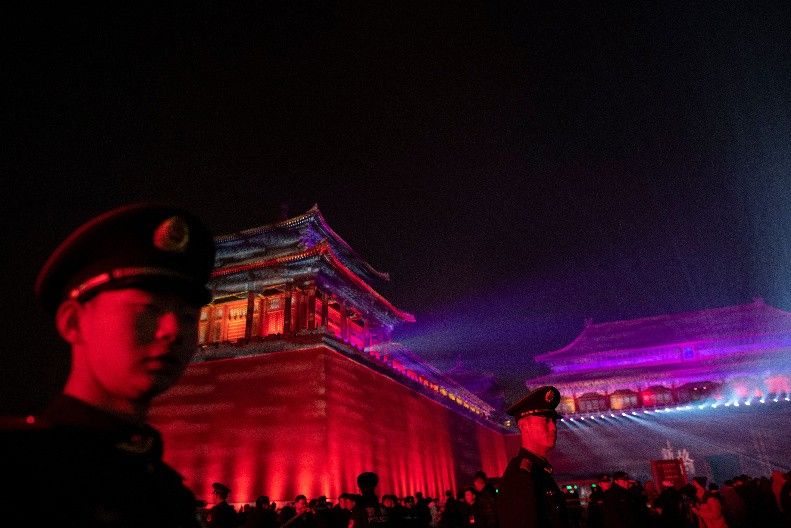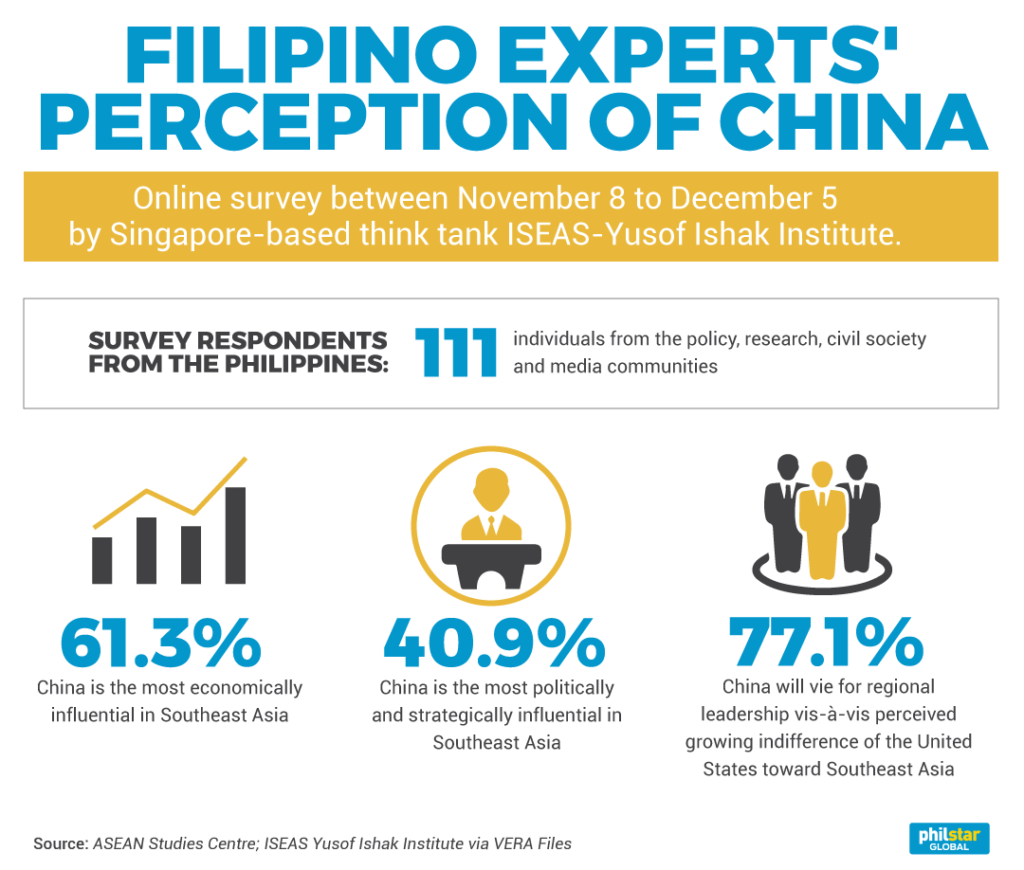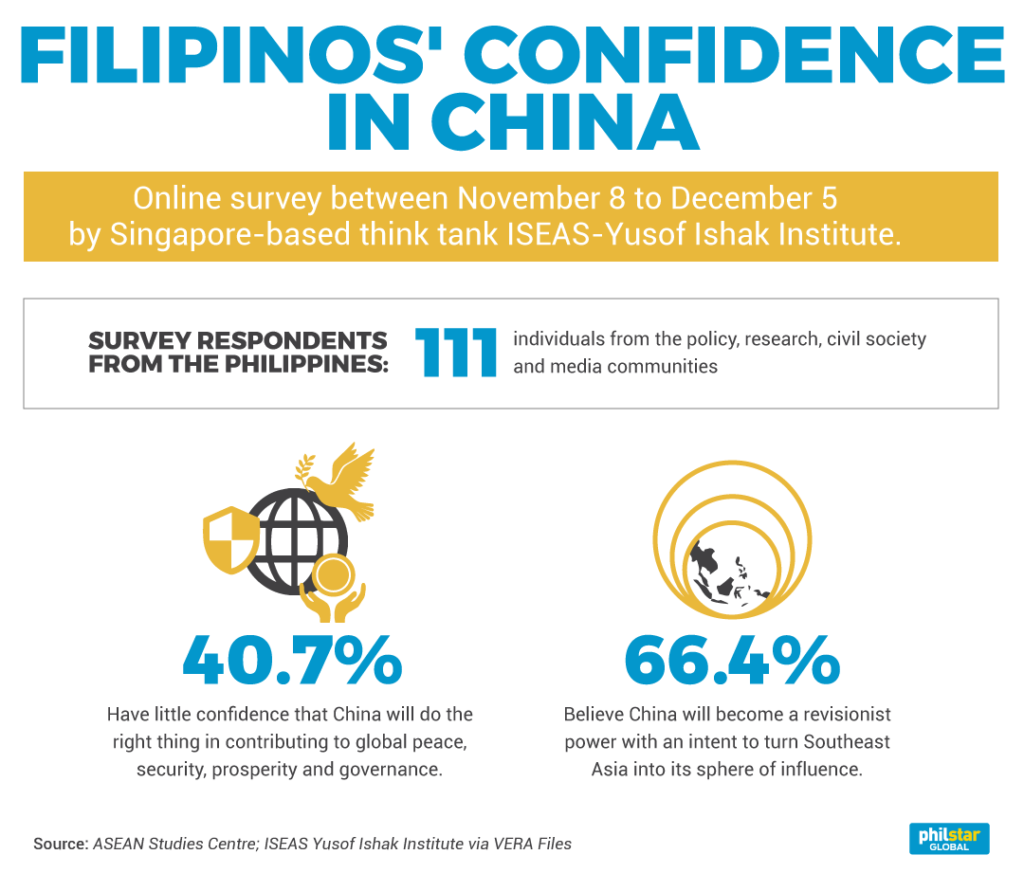[Analytics] Philippines’ experts distrust China but recognize its influence

A light show inside the Forbidden City is seen during a cultural event celebrating the Lantern Festival, the end to the Lunar New Year festivities, in Beijing on February 19, 2019. The event marks the first time the Forbidden City has been lit up at night in 94 years since opening to the public. AFP/Nicolas Asfouri
A recent online survey among regional affairs experts showed that while the Philippines looks to China to provide the “alternative regional leadership in the wake of perceived US disengagement,” it does not trust its intentions. The ASEAN Studies Center, ISEAS-Yusof Ishak Institute recently published “The State of Southeast Asia: 2019 Survey Report” that showed 52.3 percent of the respondents believe that global power and influence of the United States has deteriorated, while China’s influence has an overwhelming lead economically, politically and strategically. Charmaine Deogracias (Vera Files) specially for the Philippine Star.
The Philippines views China as the most influential country economically (61.3 percent), politically and strategically (45.2 percent). Regionwide, 73.3 percent held that same view about China’s economic supremacy, and 45.2 percent politically and strategically.
But on the other hand, the survey also showed Philippines’ level of distrust on China is high. About 40.7 percent have less confidence and 25.9 percent have no confidence at all that China will “do the right thing” in contributing to global peace, security, prosperity and governance.
There’s a significant number among Filipino regional experts, (36.4 percent) who believe the U.S. has the most influence politically and strategically in Southeast Asia.
“The conventional wisdom that China holds sway in the economic realm while the US wields its influence in the political-strategic domain will, however, need to be revisited in light of the survey results,” the survey said.
The Singapore-based regional center had 111 respondents from the Philippines out of a total of 1,008 Southeast Asians survey respondents. The respondents are regional experts and stakeholders from the policy, research, business, civil society, and media communities. About 46 percent of the respondents from the Philippines were from the academe and think tanks, 31.5 percent from government and international organizations, 10.5 percent from civil society, and 7.2 percent from the media.

The views as canvassed, according to the ASEAN Center, are not meant to be representative but rather, “aims to present a general view of prevailing attitudes among those in a position to inform or influence policy on regional political, economic and social issues and concerns.” The ISEAS-Yusof Ishak Institute (formerly Institute of Southeast Asian Studies) is a regional study center established in 1968. Its research focuses on Southeast Asia’s socio-political, security, and economic trends and developments and its wider geostrategic and economic environment.
When asked to share their views on China’s re-emergence as a major power with respect to Southeast Asia, the top response from the Philippines (66.4percent) is that China will become a revisionist power with an intent to turn Southeast Asia into its sphere of influence. This view is shared by five other ASEAN members – Vietnam, Singapore, Cambodia, Thailand and Indonesia. About 45.4percent of all respondents from Southeast Asia experts on regional affairs think so.
“This (majority view) is a wake-up call for China to burnish its negative image across Southeast Asia despite Beijing’s repeated assurance of its benign and peaceful rise,” the regional center said in its report.

The second prevalent view in the region (35.3 percent) that is true to the Philippines responses (36.4 percent) was an expectation that “China will provide alternative regional leadership in the wake of perceived US disengagement.”
The ASEAN Center’s online survey that used the purposive sampling method, was conducted between 18 November and 5 December 2018 and was published last month.
Infographic design by Philstar.com/Jonathan Asuncion
Charmaine C. Deogracias is currently a content strategist for Sensei, a digital solutions and influencer marketing agency in Toronto, Canada. VERA Files is put out by veteran journalists taking a deeper look at current issues. Vera is Latin for “true.”